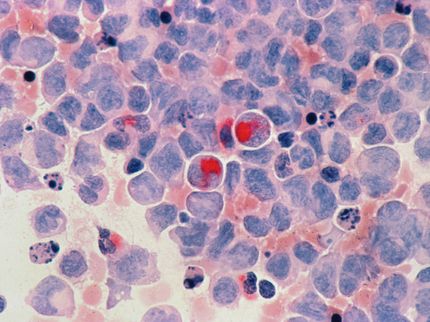Chemoradiation may increase survival for a subset of elderly cancer patients
The addition of chemotherapy (CT) to radiation therapy (RT) improves survival rates among a subset of elderly head and neck cancer patients, specifically those ages 71 to 79 with low comorbidity scores and advanced disease stage, according to University of Colorado cancer Center research presented at the 2016 Multidisciplinary Head and Neck Cancer Symposium. While previous research has demonstrated the efficacy of combining CT with RT to improve survival for HNSCC patients, this improvement had not been shown in patients older than 70 years.
"Elderly patients have been underrepresented in prospective clinical trials that have defined standards of care for head and neck cancer," said Sana Karam, MD, PhD, CU Cancer Center investigator, assistant professor of radiation oncology at the University of Colorado School of Medicine, and senior author on the study. "Our study drew on nationwide data to assess more comprehensively how combined therapy impacts this population."
The authors queried the National Cancer Data Base (NCDB) for records of patients older than 70 years who were treated for non-metastatic oropharyngeal, laryngeal and hypopharyngeal cancers between 1998 and 2011. The NCDB is a jointly-sponsored project of the American College of Surgeons and the American Cancer Society that aggregates data from more than 1,500 facilities accredited by the Commission on Cancer. Sixty-eight percent of the patients received RT alone, and 32 percent received CRT. Compared with RT alone, CRT was associated with improved survival in patients age 79 and younger with advanced disease but without comorbid conditions. Collaborators included Dr. Arya Amini, first aurthor on the study, and Drs. Bernard Jones, Antonio Jimeno, Jessica McDermott, David Raben, Debashis Ghosh and Daniel Bowles as co-authors on the study.
Patients who did not see an OS benefit from CRT tended to be age 80 or older, had a comorbidity score of two or greater, presented with less advanced disease, or were treated with three-dimensional RT. Patients age 80 or older with multiple comorbidities trended toward worse OS with CRT, though the difference was only marginally significant.
Findings may aid clinicians in discussing treatment options with their elderly HNSCC patients. Moreover, results of this study could guide future prospective trials to confirm the benefit of multimodality treatment in elderly patients, not only for head and neck cancer but for other cancer sites, as well.
"Because the toxicity of concurrent chemoradiation is greater than radiation alone for definitive HNSCC treatment, many clinicians have reservations about offering CRT for elderly head and neck cancer patients," said Karam. "However, in the era of improved radiation techniques, improved systemic therapy and better supportive care, we find that CRT does, in fact, improve survival for a large segment of this population."
The abstract, "Does Age Matter? Survival Outcomes with the Addition of Concurrent Chemotherapy for Elderly Head and Neck Cancer Patients Undergoing Definitive Radiation Using the National Cancer Data Base," will be presented in detail as a poster presentation at the 2016 Multidisciplinary Head and Neck Cancer Symposium in Scottsdale, Arizona. The manuscript will also be published in this issue of Cancer.
Organizations
Other news from the department science

Get the life science industry in your inbox
By submitting this form you agree that LUMITOS AG will send you the newsletter(s) selected above by email. Your data will not be passed on to third parties. Your data will be stored and processed in accordance with our data protection regulations. LUMITOS may contact you by email for the purpose of advertising or market and opinion surveys. You can revoke your consent at any time without giving reasons to LUMITOS AG, Ernst-Augustin-Str. 2, 12489 Berlin, Germany or by e-mail at revoke@lumitos.com with effect for the future. In addition, each email contains a link to unsubscribe from the corresponding newsletter.




















































